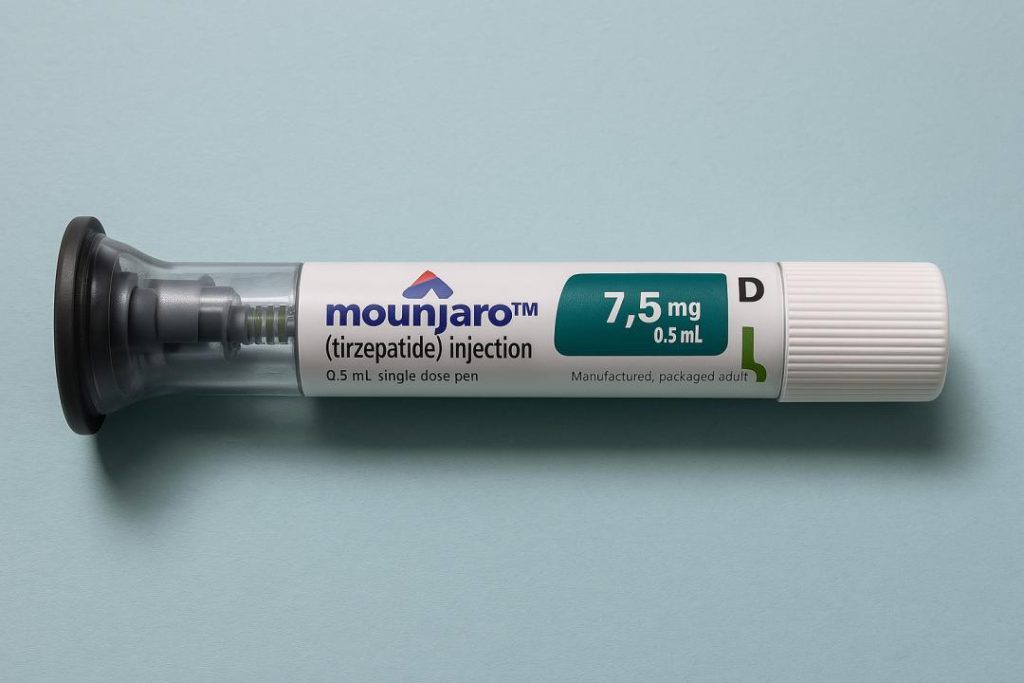
What Should You Eat While Taking GLP-1 Medications?
If you’re taking GLP-1 medications like semaglutide or tirzepatide to manage your blood sugar levels and weight, you’re likely aware of the importance of a healthy diet in achieving better results. While these medications can be very effective in promoting weight loss and improving insulin sensitivity, a balanced diet can significantly enhance their benefits. In this blog post, we’ll explore the best foods to eat while taking GLP-1 medications and provide some expert advice on how to make the most of your weight loss journey.
The Importance of Protein
One of the key recommendations for people taking GLP-1 medications is to include a source of protein in every meal. Protein takes longer to digest than carbohydrates, which helps to keep you fuller for longer and reduces the likelihood of overeating. It also helps to regulate blood sugar levels and supports muscle growth and maintenance.
Some excellent sources of protein include lean meats like chicken, turkey, and beef, as well as fish, tofu, and legumes. You can also try plant-based protein powder or egg whites as a convenient and versatile option.
Whole Foods are the Way to Go
While it’s tempting to reach for processed and packaged foods, these can actually hinder your progress on GLP-1 medications. Instead, focus on whole foods like fruits, vegetables, and whole grains, which are rich in vitamins, minerals, and antioxidants.
Some of the best foods to include in your diet are:
- Leafy greens like spinach, kale, and collard greens
- Berries like blueberries, strawberries, and raspberries
- Cruciferous vegetables like broccoli, cauliflower, and Brussels sprouts
- Whole grains like brown rice, quinoa, and whole wheat bread
- Fatty fish like salmon, tuna, and mackerel
- Nuts and seeds like almonds, walnuts, and chia seeds
Hydrate, Hydrate, Hydrate
Drinking plenty of water is essential for overall health, and it’s especially important when taking GLP-1 medications. Dehydration can exacerbate side effects like nausea and dizziness, and it can also slow down your metabolism.
Aim to drink at least eight glasses of water per day, and make sure to drink a glass of water before each meal to help with digestion and satiety.
Eating Slowly and Mindfully
Eating slowly and mindfully can help you develop a healthier relationship with food and reduce the risk of overeating. Take small bites, savor your food, and pay attention to the flavors, textures, and aromas.
This can also help you to better control your portion sizes and make more informed food choices. Try to eat without distractions like TV or your phone, and take breaks between bites to give your body time to register feelings of fullness.
Avoiding Skipped Meals
Skipping meals can be counterproductive when taking GLP-1 medications, as it can lead to overeating later in the day. Aim to eat three main meals and one or two healthy snacks in between.
This can help to regulate your blood sugar levels and reduce the risk of cravings for unhealthy foods. Make sure to choose snacks that are nutrient-dense and low in added sugars, salt, and unhealthy fats.
Limiting Junk Food
It’s no secret that junk food is unhealthy, and it’s especially important to limit it when taking GLP-1 medications. Foods high in added sugars, salt, and unhealthy fats can negate the benefits of your medication and hinder your progress.
Some of the worst foods to eat on a regular basis include:
- Processed meats like hot dogs, sausages, and bacon
- Fried foods like french fries, doughnuts, and fried chicken
- Sugary drinks like soda, sports drinks, and energy drinks
- Refined grains like white bread, pasta, and sugary cereals
- Foods high in artificial additives and preservatives
Conclusion
Taking GLP-1 medications is just one part of the equation when it comes to achieving better results. A healthy diet that includes protein, whole foods, and plenty of water can significantly enhance the benefits of your medication and support long-term weight loss.
By following the tips outlined in this blog post, you can make informed food choices and develop healthy habits that will benefit you for years to come. Remember to always consult with your healthcare provider before making any significant changes to your diet or exercise routine.
Source:
https://thepfc.club/blogs/news/what-to-eat-for-better-results-with-glp-1-drugs






